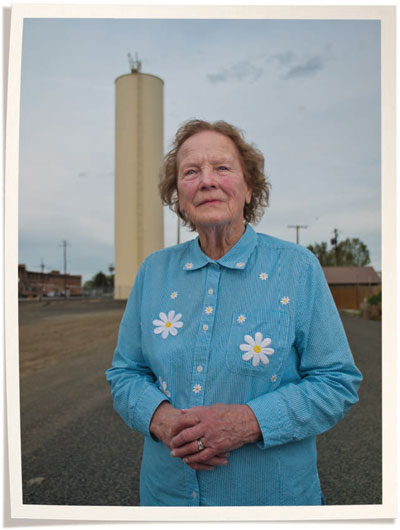 Barbara Harrer’s estimable
tenure in public service began 55 years ago, when she heard a knock on the kitchen door behind the veterinary practice her husband had opened after moving their young family from Montana to Harrah, then an agricultural community of 300 in the heart
of the Yakima Valley. Standing outside their back door was a town councilmember, literally holding the keys to the city.
Barbara Harrer’s estimable
tenure in public service began 55 years ago, when she heard a knock on the kitchen door behind the veterinary practice her husband had opened after moving their young family from Montana to Harrah, then an agricultural community of 300 in the heart
of the Yakima Valley. Standing outside their back door was a town councilmember, literally holding the keys to the city.
“He said that the clerk-treasurer had taken a job at the elementary school, and there was nobody to open town hall,” recalls Harrer, who will be 90 in July and is one of Washington’s longest-serving mayors, now in her 11th term. “He
said if I’d be willing, all I’d have to do is go down to town hall and take payments on the sewer system. I’ve always liked to do things for the community, so I said yes.”
She reported for duty at town hall the next morning, only to find a well-dressed stranger waiting for her in council chambers.
“I said, ‘You must be the town judge,’ and he said, ‘I’m the state examiner,” recollects Harrer, who was informed that town’s the wastewater treatment fund was in the red. “The only bookkeeping I had was
in high school, so I didn’t know what to do.”
Harrer wrote a letter to the Association of Washington Cities detailing the town’s fiscal woes and was referred to the Municipal Research and Services Center (MRSC), which guided her through the interfund loan process. Four years after seeing Harrah
through that crisis, she was elected to town council. In her second term, in 1977, the council appointed her mayor, a role she’s filled ever since.
“I could not have continued as mayor if it weren’t for AWC or MRSC,” says Harrer, who served on the MRSC board from 1994 to 1999 and on AWC’s board from 2001 to 2008. In nearly a half-century as Harrah’s mayor, Harrer oversaw
the drilling of the town’s first well and the establishment of a municipal water system (recently, with help from Sen. Patty Murray, the town secured a $2 million federal grant for a second well) and an EPA-mandated $3.5 million upgrade (funded
by a USDA Rural Development grant and loan) to the town’s wastewater treatment system, sometimes incurring her share of animus from local ratepayers.
“It’s wise not to get mad—I might get mad, but I don’t let them know it, and I just try to listen to the other person,” says Harrer. By way of example, she cites a resident who once showed up on her doorstep to deliver a
tirade then bought her Pepsi when he next saw her at the general store, or the owner of the local farm shop, a vocal opponent of Harrah’s municipal water system, who still delivers tomato starts for her 4-H garden. “I’ve always liked
working with people,” Harrer affirms. “I’m blessed when I meet new people. It’s been a wonderful experience.”
Her advice: lead by listening, do your homework, and always think before you talk.